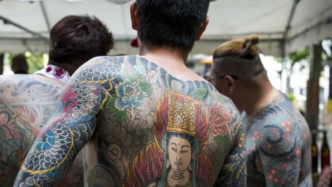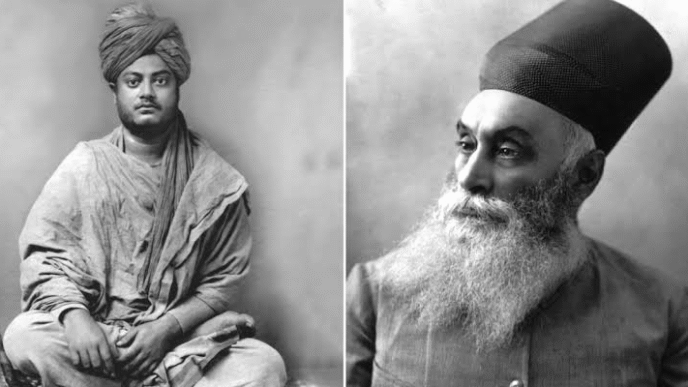For decades, the mere mention of “yakuza” conjured up images of tattooed men in dark suits, silent handshakes in smoky bars, and back-alley power struggles beneath Tokyo’s neon-lit skyline. But in a surprising twist that has stirred public curiosity and skepticism, Japan’s largest organized crime syndicate, the Yamaguchi-gumi, has pledged to end its decade-long war with a rival faction.
Why now? Can a gang really turn over a new leaf—or is this just another strategic silence before the storm?
A Letter of Peace
Earlier this week, three senior members of the Yamaguchi-gumi walked into the Hyogo Prefectural police headquarters and handed over a letter unlike any the authorities had received before. It stated, in no uncertain terms, that the gang intended to “end all internal fighting” and “never cause any trouble” again.
If that raised your eyebrows, you’re not alone.
This is the same Yamaguchi-gumi that’s been locked in a violent turf war with its splinter group, the Kobe Yamaguchi-gumi, since 2015. Over the years, Japan has witnessed stabbings, shootings, and high-profile gang-related arrests—often playing out on city streets. Police were compelled to label the two factions as officially “at war,” granting them broader legal authority to restrict their activities. Offices were shuttered. Funds were frozen. Surveillance was heightened.
So what’s changed?
Pressure from All Sides
There’s no denying the shift in Japan’s attitude toward organized crime. What was once tolerated as a “necessary evil” is now seen as a liability. Today, being affiliated with a yakuza family brings legal hurdles, social ostracism, and economic pressure. Real estate agencies refuse to deal with known members. Banks close their accounts. Even local restaurants refuse service.
Numbers don’t lie. Police data shows a steep drop in total yakuza membership—from 60,000 in the early 1990s to just 18,800 in 2024. The Yamaguchi-gumi, once a powerful syndicate boasting over 6,000 active members, now claims just 3,300. Its rival, the Kobe Yamaguchi-gumi, barely scrapes together 120.
Is it possible the yakuza are finally… fading away?
Or is something more complex unfolding beneath the surface?
Rise of the Tokuryu: A New Kind of Threat
Even as traditional crime syndicates shrink, Japanese law enforcement is grappling with a new, more elusive enemy: the tokuryu. Unlike the structured, hierarchical yakuza families, these are decentralized criminal collectives—anonymous, digital-savvy, and agile. Operating in informal networks or as solo actors, they’re responsible for a growing number of cybercrimes, social media scams, and violent robberies.
In 2024 alone, authorities investigated over 10,000 tokuryu-affiliated criminals. These groups don’t play by the old-school yakuza code of honor. There’s no tattooed loyalty here—just quick profit and fleeting alliances.
So, as the yakuza steps back, are we seeing a shift from organized crime to disorganized danger?
A One-Sided Peace?
Another big question: has the Kobe Yamaguchi-gumi responded?
So far, silence.
Police remain cautious, warning that the ceasefire might be one-sided. Without mutual commitment, can true peace exist? Authorities are keeping both factions under close watch, analyzing movements and monitoring communications.
“It’s a good sign,” said one police official, “but it’s too early to celebrate. We’ve been here before.”
Why Should We Care?
It’s easy to dismiss the gang truce as just another mafia move. But in Japan—a society built on order, harmony, and low crime rates—gang wars shatter public trust. They affect tourism, disrupt businesses, and create ripple effects in politics, real estate, and law enforcement.
A peaceful transition out of gang violence could open up space for rehabilitation programs, urban redevelopment, and stronger community policing.
But will the vacuum left by the yakuza be filled by something worse?
Looking Ahead
So, what happens next?
• Will the Kobe faction respond with a peace letter of its own?
• Will the government seize this moment to dismantle what’s left of organized crime?
• Can law enforcement handle the rise of tokuryu gangs?
• And perhaps most importantly—do people believe this peace is real?
For now, the streets are quieter. But in Japan’s criminal underworld, calm is often just the eye of the storm.
What do you think—can centuries of organized crime really end with a letter? Or are we just witnessing the beginning of a new chapter in Japan’s complex crime saga?
Source: https://www.cnn.com/2025/04/11/asia/japan-yakuza-ends-gang-war-intl-hnk/index.html











